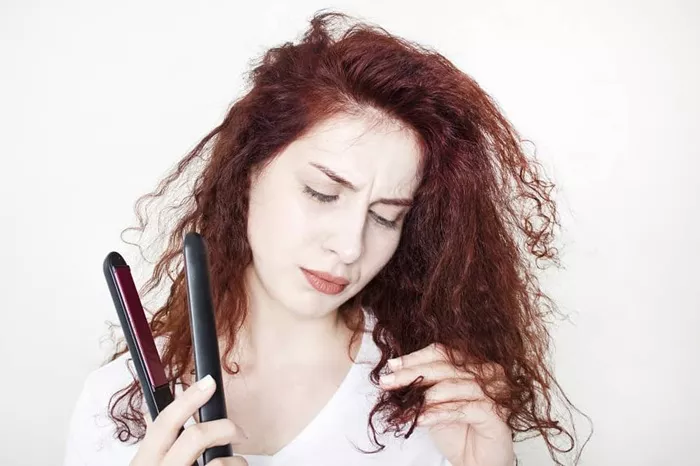The desire for curly hair often leads people to fight against their natural texture, but true transformation begins with understanding and working with your hair’s capabilities. Every strand has a “memory” influenced by moisture, protein balance, and external care. This guide unveils lesser-known techniques that gently nudge straight hair toward forming organic curls, emphasizing methods that improve overall hair health while creating lasting waves.
The Hidden Power of Scalp Stimulation
Healthy curls start at the roots. A daily 5-minute scalp massage using diluted rosemary oil (10 drops in 2 tbsp coconut oil) increases blood circulation to hair follicles. This delivers nutrients that strengthen the hair shaft’s structure, making it more pliable for reshaping. Use fingertips to apply firm pressure in circular motions, working from the neck upward to the forehead. For an enhanced effect, tilt your head upside down during massages – this temporarily stretches hair fibers, encouraging them to rebound into slight curves. Combined with weekly exfoliation using brown sugar mixed with honey, this routine removes buildup that weighs hair down, allowing natural texture to emerge.
Rice Water Rinses: Ancient Secret for Modern Curls
A traditional Asian hair treatment is making a scientific comeback. Fermented rice water contains inositol, a carbohydrate that repairs damaged hair and enhances elasticity – crucial for holding curls. To make it:
- Soak ½ cup uncooked rice in 2 cups water for 30 minutes
- Strain liquid into a jar and let ferment 24 hours at room temperature
- Mix with 1 cup chamomile tea to balance pH
After shampooing, pour the mixture through hair, massaging for 3 minutes. Rinse with cool water. The amino acids temporarily swell the hair cortex, making strands more responsive to curling techniques. Users report increased wave patterns after 4-6 uses, with best results seen when followed by the “pineapple method” (gathering hair into a loose topknot to dry).
The Twist-and-Pin Technique for Defined Curls
This salon-inspired method uses physics rather than products:
- Start with 90% dry hair sprayed with a mix of 1 tbsp lemon juice + 1 cup mineral water
- Divide hair into 2-inch sections
- Twist each section tightly until it coils back on itself
- Secure against the scalp with crisscrossed bobby pins
- Leave for 2 hours or until completely dry
The lemon juice’s mild acidity helps hair retain the twisted shape by altering its hydrogen bonds. Unlike heat tools that create uniform curls, this technique produces varied curl sizes for a natural look. For extra hold, dip twists in ice water before pinning – the sudden cold “freezes” the shape.
Humidity-Proof Your Curls with Algae
Marine ingredients offer a breakthrough for curl retention. Create a weekly mask using:
- 3 tbsp spirulina powder
- ½ cup full-fat Greek yogurt
- 1 tsp kelp powder
The algae’s minerals (zinc, magnesium) strengthen hair’s inner structure, while yogurt’s lactic acid smoothes cuticles. Apply to damp hair, wrap in cling film, and rinse after 20 minutes. This treatment helps hair resist humidity-induced frizz while encouraging gradual wave formation. Over time, the accumulated mineral deposits create a subtle texture that holds styles longer.
The Sleep Cycle Curl Enhancer
Your pillowcase can be a curl-training tool. Try this overnight routine:
- Dampen hair with hibiscus tea (rich in mucilage to coat strands)
- Apply a walnut-sized amount of shea butter to ends
- Roll sections around soft foam rods (avoid metal or plastic)
- Secure with a mesh wig cap instead of traditional scarves
The foam’s flexibility allows natural hair movement during sleep, creating looser waves compared to rigid rollers. Hibiscus tea’s natural gums provide hold without crunchiness. Those with longer hair should opt for vertical crown rolls rather than full-head sets to prevent tension headaches.
When to Adjust Expectations
While these methods work for most, factors like hormonal changes or previous chemical treatments may limit results. If after 12 weeks of consistent effort, hair shows minimal texture change:
- Try “micro braiding” – tiny braids kept for 48 hours
- Increase protein intake with collagen supplements
- Consult a trichologist to rule out scalp conditions
Remember, the goal isn’t perfect ringlets but enhancing your hair’s natural movement. Many find their hair develops a hybrid texture – straight at the roots with cascading waves – that looks effortlessly chic.
The Forever Curl Maintenance Plan
Sustain your results with:
Monthly porosity test: Drop a strand into water. If it sinks immediately, do a honey moisture treatment. If it floats, use a protein mask.
Seasonal adjustments: Use heavier oils (castor) in winter, lighter gels (aloe) in summer.
Color protection: Henna or coffee rinses enhance curl definition while depositing subtle tone.
Conclusoin
Embracing natural curl transformation isn’t just about aesthetics – it’s a practice in patience and embracing your hair’s authentic behavior. Document the journey through a hair journal, noting what techniques align with your lifestyle. Some discover their curls emerge most when they reduce stress or improve hydration. Let your hair’s evolving texture remind you that growth – both literal and metaphorical – often comes through gentle persistence rather than force.
Related topics:
How Can You Start Your Curly Hair Revolution?
How to Style the Perfect Bun for Long Curly Hair?


